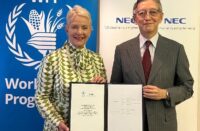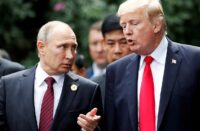By Peter OBIORA InvestAdvocate
Lagos (INVESTADVOCATE)-The International Monetary Fund (IMF) Wednesday said Ghana’s economic growth is likely to drop by -12.5 percent (-12.5%) from eight percent (8%) in 2012 to seven percent (7%) in the current year.
This is coming on the heels of the Fund’s visit to the country as part of its ongoing engagement with Ghanaian authorities where discussions focused on Ghana’s recent economic developments and challenges.
According to Christina Daseking, team leader of the IMF, Ghana’s medium-term economic prospects remain strong, short-term risks arise on the back of sizeable fiscal and external imbalances. Economic growth weakened in the first half of 2013, reflecting energy disruptions and high real interest rates.
Also, Daseking said inflation rose temporarily above 11%, as a result of the significant fuel price adjustments earlier in the year.
Daseking affirmed that the main risks to the economy arise from a large current account deficitâ€â€Âprojected to increase to above 13% of the country’s Gross Domestic Product (GDP) in response to much weaker gold and cocoa prices and ongoing fiscal pressures.
She said with projected reserves of less than three (3) months of imports, the Ghanaian economy is exposed to risks from a potentially deteriorating external environment and global financial market pressures.
“A preliminary assessment of fiscal performance during the first seven (7) months of the year reveals significant challenges. Consistent with a slowdown in economic activity, revenues have fallen short of expectations, and overruns in the wage bill, electricity subsidies, and high interest payments on public debt are creating fiscal pressures,†Daseking said.
She further affirmed that Ghana’s government responded decisively with a sharp retrenchment in other expenditure and the mid-year adoption of revenue measures, such as the reintroduction of the national stabilization and import levies. “However, it will be difficult for the government to keep the deficit below 10% of GDP,†she said.
According to her, the mission agreed with the Ghanaian authorities on the need to reduce subsidies and tackle the problems in the energy sector.
“It welcomed the reinstatement of the automatic fuel price adjustment mechanism. Going forward, restoration of electricity tariffs to cost-recovery levels will reduce fiscal risks and provide the needed space for higher social spending and critical infrastructure. To support these priorities, the mission also encouraged the government to strengthen its ongoing efforts to improve revenue collection and continue the ongoing public financial management reforms, which have gained renewed momentum,†Daseking said.
She further affirmed that the mssion’s discussions with the Bank of Ghana focused on external risks and the challenges of bringing inflation back to single digits, while stressing the need for rebuilding a prudent reserve buffer.
“It agreed that monetary policy needs to remain tight until fiscal consolidation is firmly established, and possibly be tightened further if depreciation and inflation pressures heighten,†she said.






